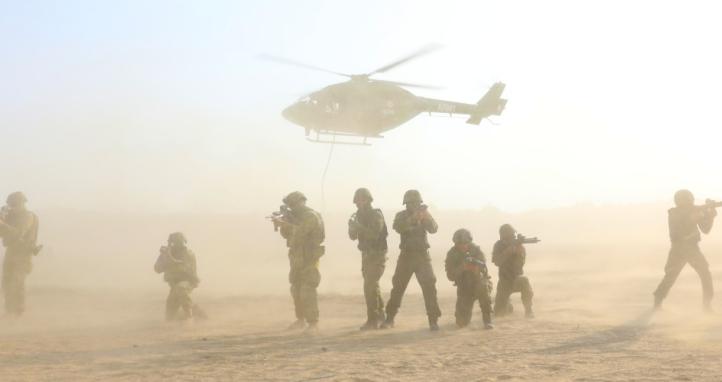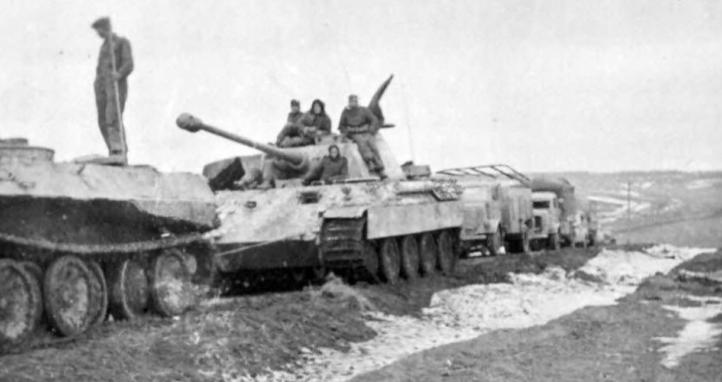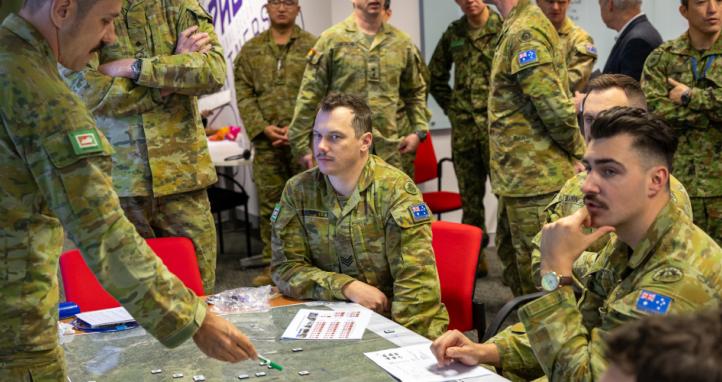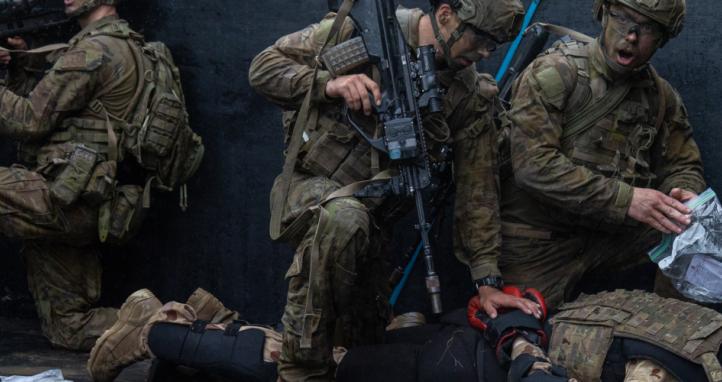A version of this article was originally published in 'Par Oneri – Australian Army Transport Journal', Issue 47, 2015.
What are the principles that make an effective junior logistics leader? Here are the six principles which I found to be the most valuable for junior logistics leaders – both non-commissioned officers (NCOs) and officers. There is no substitute for knowing your trade and understanding your corps’ business – these six principles enable you to use your trade and your teams' skills to best effect as part of the combined arms team to fight and win the joint land battle.
1. Hope is not a method – or a principle of logistics.
Have a plan, a backup plan, and use your time prior to a task to consider all the aspects that may go wrong. Have a plan for those too. This is not to suggest that you have to be able to solve everything yourself – instead you need to know the limits of your team and your resources so that you can seek assistance as required. Warn out your boss that should the Battery Commander need to move to sustained firing for more than the planned time, your troop of trucks will need to be reinforced, or that the material handling equipment you can access will not be able to unload stocks from third line.
2. Relationships with your peers is critical.
You have a rich cohort of fellow NCOs that you have done subject courses with, officers you graduated Duntroon with, your brigade sporting team mates, and those with whom you worked on the last field exercise. Use your time in barracks to develop an excellent understanding of what they do, their equipment and resource needs, and their personalities. Know when they will need support in the field and what you are going to do about it. Understand their stressors and when you are in the field, it is raining for the seventh day straight, and everyone is a little snappy, the effort you invested in that relationship will pay off.
3. Early and aggressive engagement in other people’s plans.
Never wait to be told what the plan is. Be curious, get engaged in what your Battle gGroup or Combat Team Operations Officer (OPSO) is planning and provide advice early to them on what is logistically possible with your current resources. Warn out the Combat Service Support Battalion (CSSB)/Force Support Battalion on what the Battle Group is planning so that they too can be prepared. Invite yourself over for a brew and make sure you (or another logistics NCO/officer) are included in the planning. Make sure that you understand the tactics that your supported unit will use – indeed, you need an excellent understanding of tactics and the Military Appreciation Process to be credible. Figure out what specialist support could assist. Would this operation be enabled by an airdrop? Do we need to consider logistics over the shore when the Combat Team gets closer to the shore than the land based CSSB? Where is that Post Office detachment needed?
4. Understand the red-blue plan.
I have to credit this idea to OPSO 1 CSSB (2006) who taught me to look beyond the ‘red’ plan of how the enemy will disrupt logistic operations and the ‘blue’ plan of what the Battle Group plan to do and think they need logistically. The ‘red-blue’ plan is the unintended consequences of operations – what will the Combat Team do that will adversely impact on your logistics plans? Perhaps they will exploit beyond your ability to support them? Or forget to advise that they will need a retrain station in a location unable to be reached by your trucks for resupply? Have they got a plan to deal with Prisoners of War?
While early planning and strong relationships will help both sides anticipate each other’s needs, this is where I believe the ‘art’ of logistics comes in. An effective logistic leader ensures that the tactical plan is not limited by logistics shortfalls that could have been anticipated and advised early in the planning.
5. Innovate until apprehended.
You are paid to think your way through the problems. Doctrine is a collection of previous solutions that have worked in different environments – read it and understand the context in which it was written. Methods for solving logistics problems in HA/DR are very different to those Australia has learnt in the jungles of Vietnam. The way we solve our amphibious logistics concerns in the future will be different again. So having thoroughly planned with your peers in the units you are supporting, think about the most functional way to achieve your task.
It is often written that the most expensive phrase in business is ‘we’ve always done it that way’. Doctrine is an excellent guide – but it is not always the only method to achieve your task. Innovation is about understanding the tactical and logistical context and improving the processes that you use, not throwing out doctrine.
6. Respect tradition and understand our history.
While in barracks read widely to understand the challenges faced by our predecessors and the successful and unsuccessful solutions they chose to enact. Realise that as a peacetime Army of 30,000 troops the capabilities and methods we employ are limited. Read to understand what is required and what is possible in an era of total war so that when you are on operations your considerations are not limited by what you have personally seen on exercise.
Respect the traditions that have been developed by our predecessors – and know when the present situation coincides with a historical challenge. How are you going to operate in a satellite degraded environment when the accuracy of GPS data is compromised? What can you learn from logistic support to urban operations or beach landings from World War II?
As a junior logistics leader you are employed to think, consider, and seek daily improvements in the way you do business. Consult widely to develop the best possible plans for your logistics team to be an effective and efficient part of the combined arms battle. These principles are designed as a guideline to help develop your professional skills, and require only a commitment to the improvement of yourself and your team.
This article is one opinion based on one person’s experiences. I would like to encourage others to take the opportunity to contribute to the debate within our logistics fraternity at all levels.










Congratulations Ma’am, full COL!